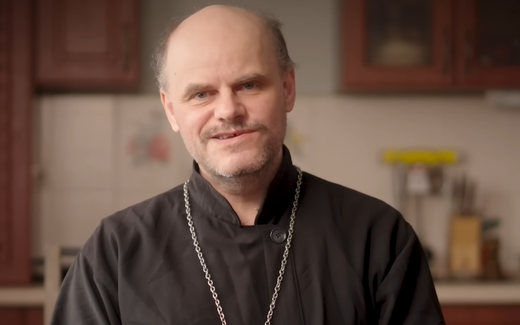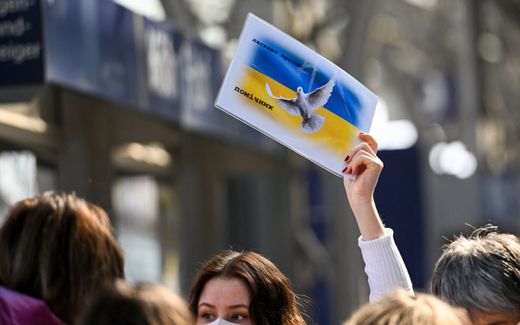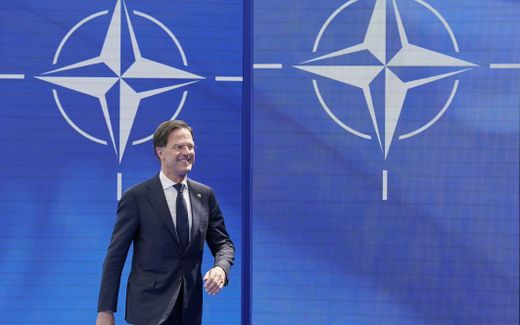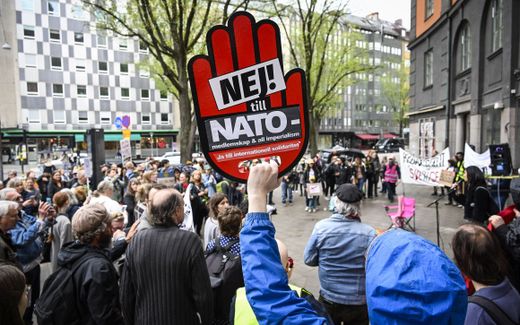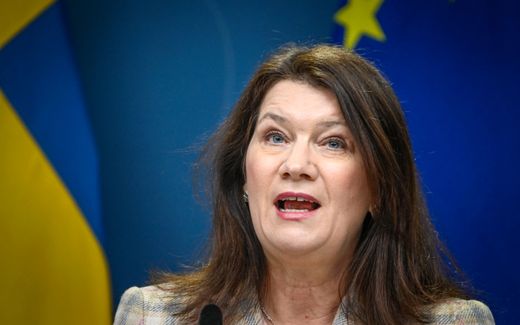As war looms in Europe, some Christians pursue pacifism
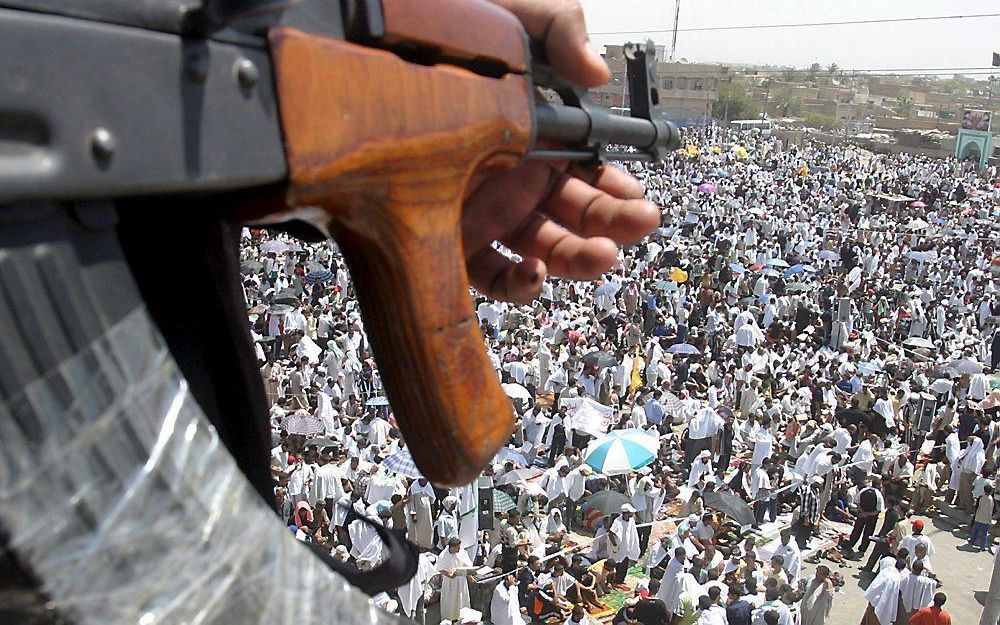
Christian pacifists believe in putting down the gun in pursuit of more peaceful methods. Photo EPA, Ali Abbas
European Union
As Europe dials up its armies and defence arsenals, many Christians wonder: should we take up arms and join the fight? Or should we work for another form of peace?
Stay up to date with Christian news in Europe? Sign up for CNE's newsletter.
However, many Christian pacifists say, “Not so fast,” and believe that Jesus and the Bible preached a clear message of non-violence. The Oxford Dictionary defines pacifism as “the belief that war and violence are unjustifiable and that all disputes should be settled by peaceful means.”
Some Christians in Germany and Sweden are becoming popular advocates of non-violence. At the same time, some Christians believe that we have a God-given duty to maintain and fight for freedom of faith.
Mirror
With the war in Israel and Gaza now in focus, professor and theologian Fernando Enns believes that the fighting there cannot be legitimised, even if one side appears to have nobler intentions over the other.
Although he does acknowledge the right to self-defence when one’s life is in danger, that argument eventually becomes “a mirror,” where the concept gets projected onto us.
“Eventually, everyone is defending themselves. We have to overcome and deal with the conflict in different ways,” he says. “The logic of self-defence also leaves out: what kind of means am I allowed to use?” the head of the Association of Mennonite Congregations in Germany also says.
But some might ask: haven’t we been given the right to kill, especially when innocent families and children are being killed in Israel and Gaza?
Enns answers that question: “God is not making a distinction based on our passports.” And with that, targeting specific groups of people in an attack is a “betrayal of the Gospel itself.”
“I am not God. I am a human being. I am not to determine who dies and who doesn’t. We have to be aware of the sinfulness of the human being.”
He also points to the Gospels and Jesus’ teaching from the Sermon on the Mount in his defence of pacifism. Christians should read these passages and explore the different perspectives with other believers from around the world, Enns explains.

“God has given us these tools to live with conflicts in a peaceful and Biblical way.”
What is most important, he says, is that Christians should hold their national leaders accountable when it comes to decisions on attacking specific nations and ethnic groups.
“The language used by governments has been used and misused to justify military actions. We have to learn to be critical of our governments. If all Christians held their government accountable, the world would change.”
Behaviour
A different outlook has Fabian Neumann. He serves in the German army (Bundeswehr) as an active Officer of the Reserve and sees a justification in the act of fighting and killing. He became a Christian after going into the military and later contemplated how to justify fighting with his newly discovered faith.
He points to the Bible and mentions the sixth commandment: “Thou shalt not kill.” Although this statement seems contradictory, the Bible contains two forms of killing, he says.
There is the general act of killing with good intent or purpose (to kill), and the other involves killing without justification (to murder), which he believes goes against God’s will.

He clarifies further by saying that in the Old Testament, God permits the Israelites to kill in specific circumstances.
For example, in Deuteronomy 20:16-18, God gave the Israelites the directive to “not leave alive anything that breathes”. The Israelites were then commanded to destroy idol-worshipping nations such as the Canaanites and Hittites.
Looking to the New Testament, local soldiers asked John the Baptist about their profession and what their life should look like as a Christian. John responds by showing them how to be Christ-like in their behaviour but does not tell them to give up their occupation.
“We see that Jesus and the Apostles are not punishing military officers but showing them how to behave. People should see a difference in your behaviour,” he says.
While many Christian pacifists cite the Sermon on the Mount as evidence that Jesus preaches a message of peace, Neumann has a different perspective. He believes that the passage refers to another time, a period not set for the present day but for a future time, known as the tribulation.
Although he now works full-time in logistics and has a family, Neumann remains active in his military career. While some may think that the military almost always involves having a rifle in your hands and being on the front line, that is often not the case, he notes.
For every frontline soldier, it takes around seven support personnel—from logistics specialists and medical staff to intelligence and administrative workers—to keep the troops at the front supported.
“Our biggest threat is currently Russia,” he says.
He also feels that it is important to defend his country, which means fighting for the liberties often taken for granted in Germany but making it possible for us to practice our faith openly.
“The soldiers are the biggest pacifists. We need a big and strong military together with our NATO partners so there will not be a war. When you give the impression that you’re weak, they will attack you.”
Pacifism in Sweden
Micael Grenholm, a pacifist from Sweden, is a PhD student studying the historical forces behind pacifism in Sweden’s Pentecostal Christian community. He explains that approximately one hundred years ago before Sweden attempted to bolster its military ranks and defence GDP, its Christian leaders laid a foundation for negotiating and peacekeeping.
One example of this is the ecumenical gathering of the Stockholm Conference in 1925. The gathering, he notes, set a precedent in uniting the Protestant churches and peacekeeping after World War I.
While it is still unclear how pacifism took root within the Swedish Pentecostal community, Grenholm hopes to solve that mystery in his research. However, he knows that most Swedish Pentecostals became the single largest religious group in their refusal to bear arms in the 20th century.
As that trend flourished, many Pentecostals argued that it was wrong for Christians to kill, even as the informal leader of the movement, pastor and author Lewi Pethrus, was opposed to pacifism and defended the US invasion of Vietnam. Today, pacifism is not as common among Swedish Pentecostals, but it still exists, he says.
While governments continue to expand their military spending, Grenholm reflects further that many Christ-followers have bought into the logic of justifying the act of killing in war.
For example, Grenholm quotes from Mere Christianity by CS Lewis, a figure that many Christians have come to admire for decades: “It is, therefore, in my opinion, perfectly right for a Christian judge to sentence a man to death or a Christian soldier to kill an enemy. I always have thought so, ever since I became a Christian and long before the war, and I still think so now that we are at peace.”
He also explains that the evolution of a “just war” used by many international leaders was also a big factor.
Despite historical justification on fighting, Grenholm hopes to see a pacifist revival within Pentecostals and the greater Christian community.

However, he notes that some distractions used by non-pacifists remain, such as: What if an armed robber broke into your home and threatened to kill your family? And: should Christians take what Jesus says in Matthew 5:39 literally when Jesus mentions to turn the other cheek?
While Grenholm acknowledges the emotional urge to self-defend, he argues that this principle is not in the Bible. Statistically, most people who use violence in self-defence fail, he says.
“Jesus is not legitimising abuse and oppression when he said to turn the other cheek. Still, he is clearly against violent self-defence.”
Grenholm emphasises further that neither Jesus nor his disciples ever used or justified force. We can also see similar examples among the Christian apostles when they were persecuted in Acts.
“They never used weapons but chose to love their enemies as Jesus instructed them to do. And Jesus never used violence. My hope and prayer are to become as Christ-like as possible- to do what Jesus would have done.”
Related Articles



